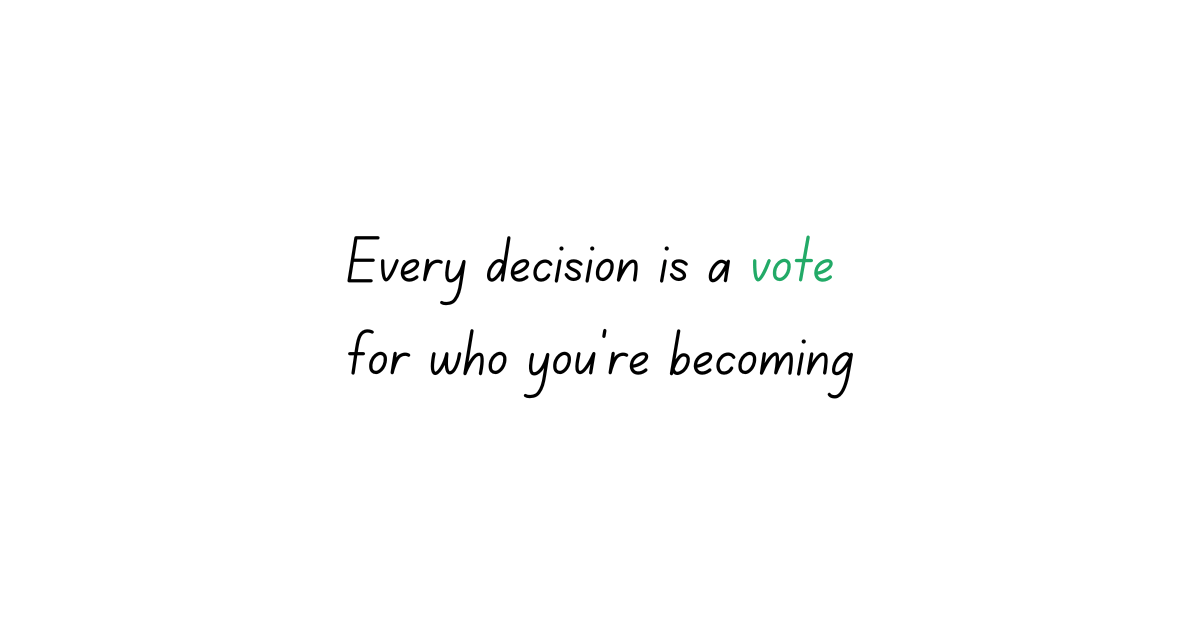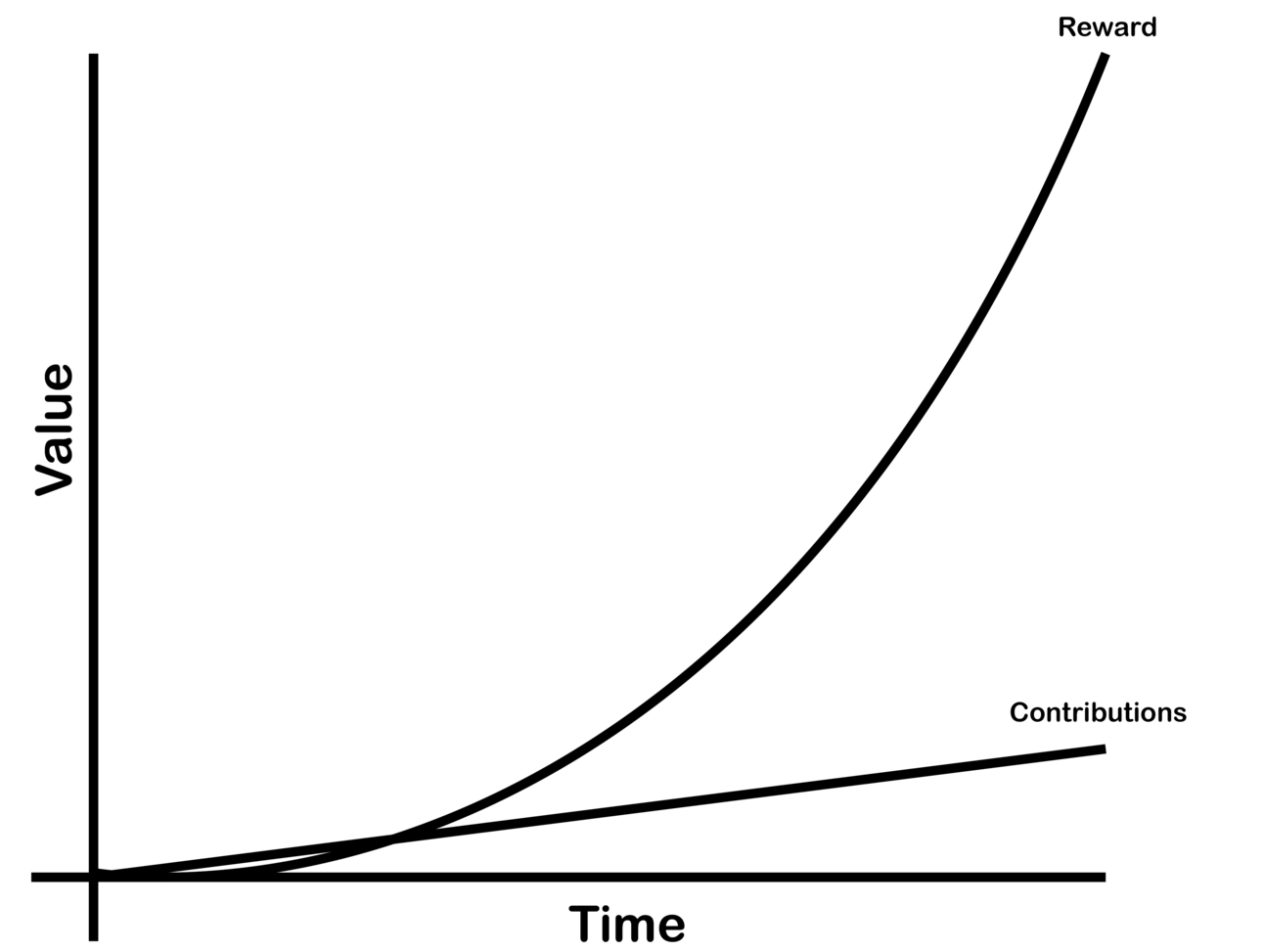- Steps Worth Taking
- Posts
- The most valuable compound interest isn't financial
The most valuable compound interest isn't financial
What if you invested your time like your money?

Not a subscriber yet? Sign up here
“Compound interest is the eighth wonder of the world.”
You know who said that?
Albert Einstein.
Let’s say you invest $100 a month into a portfolio that returns 10% annually. How much do you think that investment would grow to after 30 years?
$226,048!!!
Why? Compound interest.
Here’s the key: while your contributions grow linearly, the reward grows exponentially.

That’s why young people are taught to start investing as early as possible — the earlier you begin, the more you benefit. And yet, despite knowing this, 69% of Gen Zers say they regret not investing earlier.
The oldest Gen Zer is only 28.
But money isn’t your most valuable asset.
Time is our most valuable asset, yet we tend to waste it, kill it, and spend it rather than invest it
And just like money, time compounds.
You can check your bank statement to see how you’re spending your money. But how do you check how you’re spending your time?
You don’t. There is no monthly statement. No dashboard. No “budget vs. actuals.”
That’s why it’s easier to identify reckless spending — the $7 coffee, the $20 Uber, the $15 drink — than it is to spot reckless time usage.
But make no mistake: every moment you spend aimlessly is a hit to your future self.
The 45 minutes of doomscrolling that could’ve gone to reading.
The three episodes of a show that could’ve been a workout.
The “I’ll start tomorrow” that quietly repeats for months.
I know this all too well — I’ve binge watched entire seasons in one sitting. And while I don’t regret the occasional break, I do regret the habits those choices reinforced.
We create financial budgets to be more intentional with our money.
But what tools do we use to be more intentional with our time?
What if we treated time like the limited, high-potential asset it truly is?
Because the way you spend your time shapes who you become.
Running a mile doesn’t make you a runner.
Writing a page doesn’t make you an author.
Practicing piano once doesn’t make you a musician.
But do these things consistently—day after day, month after month—and they start to define you.
You build identity through repetition.
That’s the quiet power of compounding in action.
Most people overestimate what they can do in one year and underestimate what they can do in ten years.
We crave fast results. We want to feel progress right away.
But the truth is: progress is rarely linear. It’s invisible. Quiet. Even boring.
Until one day, it clicks.
You’ve built momentum.
You’ve built discipline.
You’ve built a version of yourself you’re proud of.
But remember, compounding works both ways.
Doomscrolling for an hour won’t ruin your day.
Doing it every day for a year? That shapes your identity too.
It’s not the single choice that matters. It’s the pattern.
And every choice you make is a vote for the kind of person you’re becoming.
Every indecision is a decision.
Every yes is also a no.
Saying yes to scrolling is saying no to growth.
Saying yes to fitting in is saying no to standing out.
Saying yes to drifting is saying no to designing.
The only question is:
What are you saying yes to?
Just like with investing, the best time to start was yesterday.
The second-best time?
Today.

🌱 This week’s step worth taking
Identify one way you’re recklessly spending your time.
Choose one small habit that aligns with the person you want to become — such as reading, exercising, or texting/calling a friend.
Trade the first for the second — just once this week (or more, if you’re up for a challenge).
Small steps build strong identities.

📚 Worth the Read
If you liked today’s issue, I highly recommend:
Atomic Habits by James Clear — simple practices that help build good habits and break bad ones.
Good to Great by Jim Collins — insights on what separates good organizations from great ones and how consistent actions drive the shift.
Both dive deeper into how choices compound over time.

🔄 Misstep of the week
I may or may not have binge-watched an entire season of a show this week. 🙃
Okay, I did. Definitely did.
And it ruined my sleep and impacted my productivity the following days.
Next time I start a new show, I’m hitting pause before the autoplay kicks in.
Because “binge-watcher” isn’t an identity I want to build.

🙌 Step Spotlight
Struggling with late-night scrolling? Connor swapped it out for something better.
Each night this week, he read one chapter of a book instead of reaching for his phone.
After years without reading, he’s finally back in learning mode—and loving it.
Nice work, Connor 👏
Want to be featured in next week’s Step Spotlight? Respond to this issue with a step you’ve taken that you’re proud of.
Until next week.
Step by step,
Nathan
P.S. If you really want to challenge yourself this week, try tracking your time in 15 minute increments as Alex Hormozi outlines here
